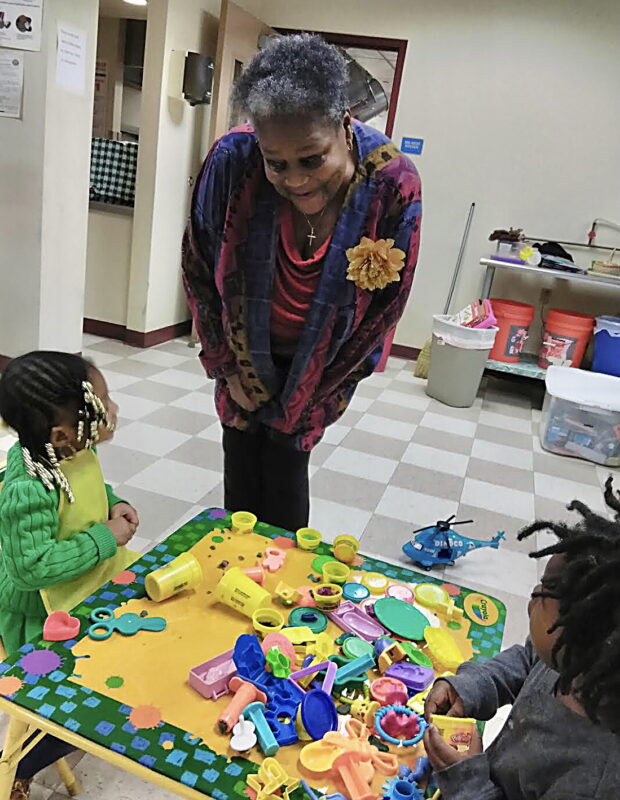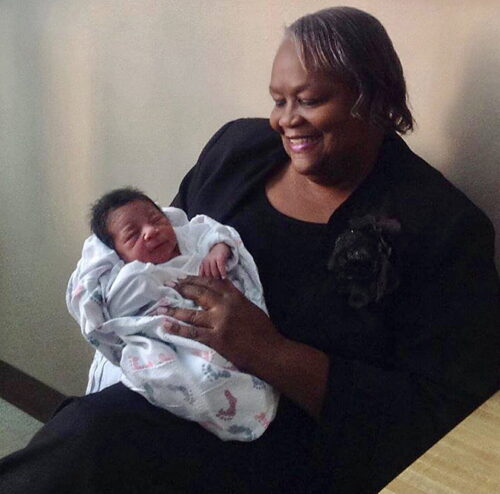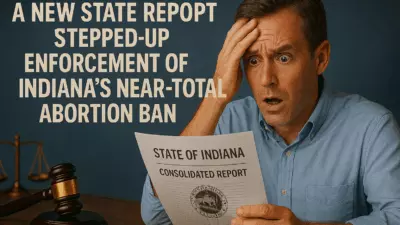The Rev. Diann Holt knew a change had to come last year.

In 2013, she founded Durham’s Baby Café, in a community center owned by Durham Memorial AME Zion Church, as a place where volunteers would provide breastfeeding education, diapers and other baby supplies, and food, to mothers in a predominantly Black neighborhood with a high poverty rate in Buffalo.
In March 2020, after the COVID-19 pandemic ended face-to-face meetings — and employment for many residents — Holt led the Baby Café’s board of directors in changing the name of the nonprofit to Durham’s Maternal Stress-free Zone because the mission was changing, she said.
“Breastfeeding will always be my primary choice of service. But I want to bring in the doulas. I want to bring in the Lamaze [classes]. I want to do grief counseling. I want to do the healing piece,” said Holt, 73, a retired nurse who is also a certified doula and Lamaze trainer. The nonprofit also used a small grant to buy iPads to hold virtual classes on breastfeeding for pregnant women and pair them with volunteer trained doulas, she said.
This type of grassroots connection to women — before and immediately after they give birth — is becoming more plentiful because it is a key piece of the puzzle in lowering maternal mortality rates, especially for Black women, who have the highest maternal mortality rates among all pregnant women in the U.S., according to the Centers for Disease Control and Prevention.

Across the nation, grassroots efforts, many led by Black women, are taking shape to train women of color to be community-based doulas or provide other services that work in conjunction with more formal health care services. The goal is to provide access to support and a voice to women who may be lacking it.
“Women do better when they have support, when you can talk to someone who looks like you, someone who has the same experiences that you have, someone who can relate to what it is that you’re telling them,” Holt said.
The United States has the highest maternal mortality rate of any industrialized country — 17.4 per 100,000 pregnancies represented about 660 maternal deaths in 2018, according to The Commonwealth Fund, a New York organization that supports independent research on health care issues.
The situation is worse for Black women.
“Black women are three times more likely to die from a pregnancy-related cause than White women. Multiple factors contribute to these disparities, such as variation in quality health care, underlying chronic conditions, structural racism, and implicit bias,” according to the website of the Centers for Disease Control & Prevention in Atlanta.
“Women do better when they have support, when you can talk to someone who looks like you, someone who has the same experiences that you have, someone who can relate to what it is that you’re telling them.” — The Rev. Diann Holt
Doulas are not considered medical workers. Instead, they are trained to provide physical, emotional, and educational support to pregnant women before, during and shortly after birth, according to DONA International, a doula-certifying organization based in Chicago.
Doulas help pregnant women prepare for birth by teaching them breathing exercises and birthing positions, providing prenatal information, and helping pregnant women to stay calm during labor. They also advocate for patients who may be reluctant to speak up for themselves to doctors.
After the birth, they can give mothers breastfeeding education and check in on the family’s progress with the newborn.
For women at high risk of negative birth outcomes, those who receive care from doulas are two times less likely to experience birth complications and four times less likely to have babies with low birth weights, compared to women who don’t have doulas, according to The Commonwealth Fund.
The idea of women without formal medical training helping women give birth is not new.
Well into the 20th century, most American black women gave birth at home, said Dr. Deirdre Cooper Owens, director of the Humanities in Medicine program at the University of Nebraska-Lincoln.
“The impact of racial segregation affected black women’s access to giving birth in hospitals, especially in rural communities,” she said.
Doulas have been around since babies have been birthed, but they might not have been called by that name, said certified doula Ashley E. Davis, 32, who founded Dandelion Legacy Doula & Wellness Services LLC in Hope Mills, N.C., in 2017.
“When midwives were attending, someone such as an aunt or cousin … was assisting,” Davis said.
The use of doulas is becoming more mainstream for several reasons, including social media providing the public with more access to information, she said.
Davis is a founding member of the National Black Doulas Association, which has trained more than 1,000 doulas since its start in 2017, she said. She herself has trained 20 doulas this year since becoming a licensed instructor, she said.
Durham’s works with 13 volunteer doulas, nine of whom are Black, connecting them with pregnant women in the Buffalo community.
Buffalo resident Elyse Whitlock, 29, took several parenting preparation classes online while pregnant last year via Durham’s, which paired her with a doula.

The doula coached Whitlock in breathing exercises and birthing positions before and during her labor, and advocated on her behalf to hospital doctors during the delivery, said Whitlock, who gave birth to her first child, a baby girl, in February.
“If it wasn’t for her, oh, I don’t know what would have happened,” said Whitlock, who works as an aide on city school buses.
Dr. Sharee Livingston, who is the department chair for obstetrics and gynecology at UPMC Lititz in Lancaster County, Pa., co-founded the Diversifying Doulas Initiative to train doulas of color in June 2020. It developed out of necessity.
“Ninety-nine percent of obstetrics are happy times, and everything is great and wonderful. But when bad things happen, it sticks with you,” Livingston said.
Because Black women are more likely to die in childbirth compared to white women, so there’s more of an urgent need for doulas and other services, she said.
“But doulas are cost-prohibitive in the marginalized communities,” she said.
Using grants, DDI pays $1,000 to $1,400 per doula to give pregnant women of color free care in the Lancaster community. The service, which has helped 63 pregnant women of color, usually includes a doula making two prenatal visits to a client, attending the labor and delivery process, and making two postpartum visits, Livingston said.

DDI also was founded with the goal of training black and Latino women to be doulas.
Before the organization’s founding, there was one doula of color in Lancaster, she said. Now there are 26.
“And that’s why we continue to advocate for funding and support. This program, as well as others, must remain in existence … until we can reverse the unfortunate trends that we’re seeing,” she said.
DDI has received grant funding, including $25,000 from the Lancaster Osteopathic Health Foundation, $5,000 from UPMC Pinnacle Foundation and $5,000 from Gateway Health.
It costs $50,000 to $75,000 annually to run Durham’s program, which is funded by nonprofits’ grants and individual donations, Holt said. The program serves about 100 clients a year, she said.
New York is one of the few states that provides any Medicaid reimbursement for pregnant women who receive doula care. The state pays $600, but the care can cost up to $1,200.
There has been some shift of focus by health care professionals to recognize non-clinical types of care to support better birth outcomes but more is needed, said Dr. Dara Mendez, director of the Center for Health Equity at the University of Pittsburgh.
“The bulk of the resources and money still goes to clinical care, medical care. And I think that’s still, I would say, a little bit of the rub. And the challenge is we know the community-based and community-led efforts are really what’s going to move the needle,” she said.
At least 20 states recently have introduced, and several have passed, legislation related to doula care, said Khanh H. Nguyen, a senior policy specialist in the health program at the National Conference of State Legislatures in Denver.
“For example, in 2021 Rhode Island passed a resolution celebrating World Doula Week and Tennessee recognized doulas as vital birth and community health workers, acknowledging their role in addressing maternal and infant health disparities. Virginia passed legislation in 2020 related to doula certification,” Nguyen said.







